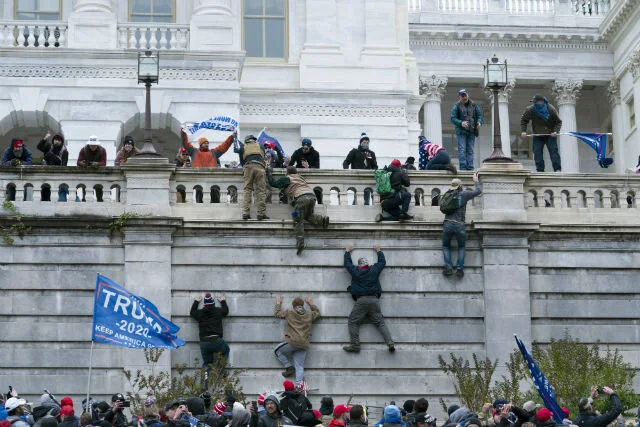Our republic: Resilient against physical attack, less resilient against the undermining of national institutions By Michael McCarthy
The illegal actions on January 6th in our Nation’s Capital are truly sad and will likely live on in our nation’s collective memory for generations, but our Republic is not so fragile against physical attack; the Constitution would have endured. The more significant concern to our nation is the doubts sown to undermine our institutions: our elections (“rigged”), our media (“fake news”), and our federal agencies (“deep state”).
The citizens who violently stormed our Nation’s Capitol last week were a physical attack on our Republic. While it was generally considered not a coup, it was a manifestation of those who believed much of commentary that continues to undermine our national institutions.
Our nation would live on even if the worst-case scenario occurred on January 6th: the burning of the Capitol and Congressional Members assaulted, or worse. While I am certainly pleased that this worst-case scenario did not play out, the physical assault at the Capitol never was a threat to our Republic, even if the attack was much worse.
Photo from wikimedia
First, the whole Capitol building could be burned to the ground (it would not be the first time Washington burned). We are not a nation of buildings; we are a nation of laws and ideals. The Constitution does not say where to meet, just that Congress must meet. Congress could meet in a hotel’s conference center or a college’s arena . . . the location is not important.
Second, as a former service member, I knew that the U.S. Military service members swear their oath to “support and defend the Constitution of the United States against all enemies, foreign and domestic” (an oath very similar to the oath taken by U.S. Senators). This oath not only prevents coups but would prevent this insurgency from becoming more than what it was. The Joint Cheifs of Staff released a statement denouncing insurrection, acknowledging their role in protecting the Constitution, and affirming the transition of power from one Commander in Chief to the next. Additionally, all military orders must first be assessed to be lawful orders. While most Service Members will never encounter an unlawful order, our military leaders are trained to be mindful of the potential . . . going so far to teach Service Members that they have a duty to disobey unlawful orders. Today, our military is apolitical and a disciplined volunteer force, notwithstanding some individual service members’ criminal activity.
Last, the uncertainty in the political system we are experiencing today always exists. There have been ebbs and flows of uncertainty within our political system, and the recent events at the Capitol are just another example, albeit extreme. The political uncertainty we are currently experiencing is undoubtedly real and uncomfortable, but this is not too dissimilar from the Whisky Rebellion, Lincoln’s election of 1860, Vietnam peace protests, Nixon’s Watergate, or many other historical events that caused great consternation for the country. Sadly, uncertainty within our political system is the norm rather than the exception.
Our nation is resilient against physical assault; however, we muster ourselves for the long battle against those — both internal and external — who strive to undermine our belief in our national institutions and thereby undermine our nation.
Michael McCarthy is Assistant Professor and Director of Data Science at Utica College






